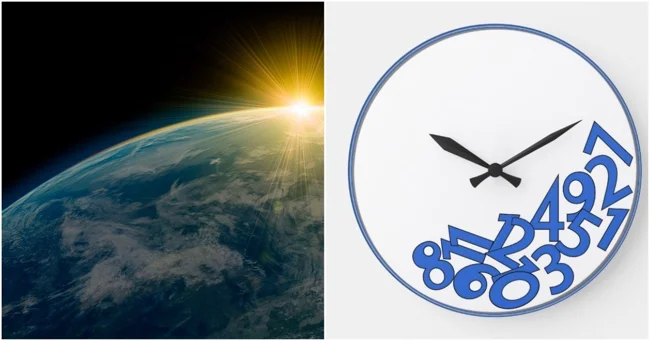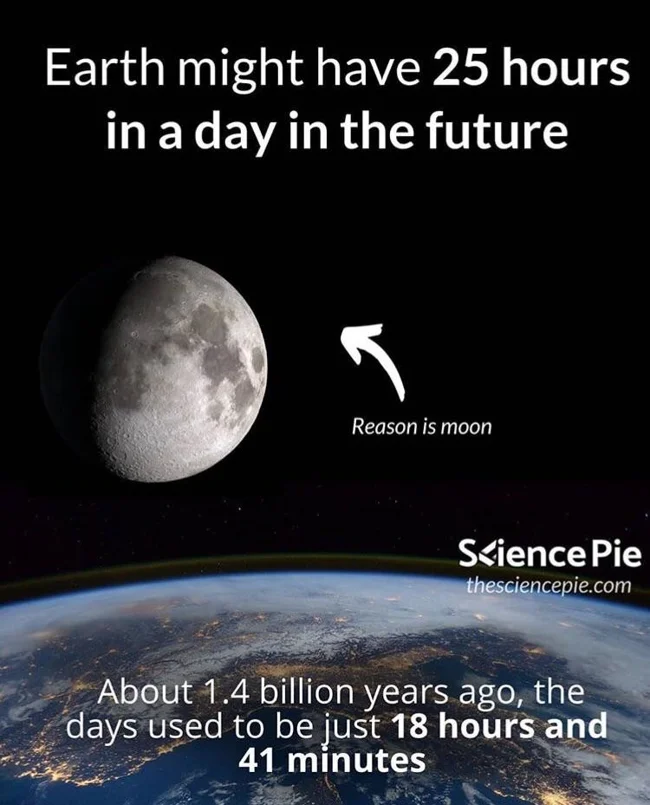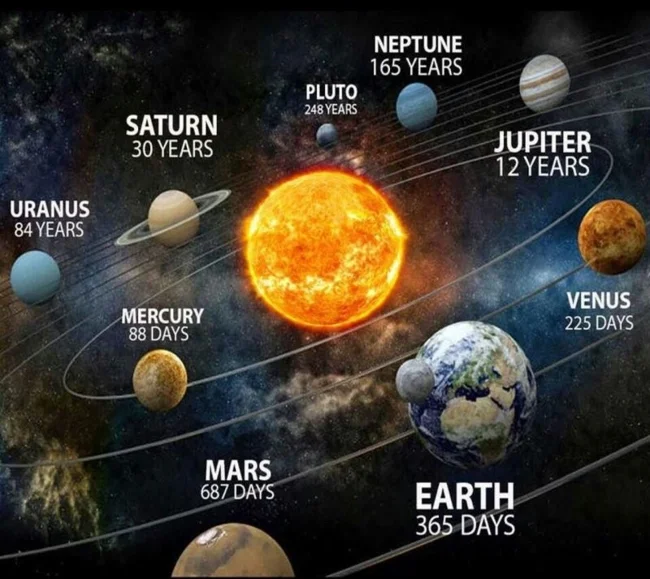Scientists are sure that a day on Earth can stretch to 25 hours (3 photos)
The day may become an hour longer, but we will not live to see it. Too bad. 
Have you noticed that with age, the days become shorter? The years go by faster, and sometimes there are not enough hours in the day. But this only seems to us. In fact, the days on our planet, although terribly slowly, are increasing in time.
Scientists have established that 1.4 billion years ago, a day on Earth lasted a little more than 18 hours. This is because our satellite was closer to the planet. A University of Wisconsin-Madison study shows that the Moon is moving away from Earth at a rate of about 3.8 centimeters (1.5 inches) per year. 
Stephen Meyers, a professor of geosciences at the university and a co-author of the study, believes that this process could add another hour to the Earth's day over the next 200 million years.
To predict the distant future, scientists use a technique called astrochronology. This method analyzes geological records that reveal information about the early solar system and the past of Earth.
Here's how long a "year" is on the planets of our solar system. 
Mercury is the closest planet to the Sun, rotating on its axis in 58.6 Earth days. If you could live on Venus, your day would last almost 5832 hours - it is the planet with the longest day in the Solar System. Mars is not very interesting in this regard: its day lasts 24 hours and 37 minutes.
The accepted length of the day on Jupiter is determined by the magnetic field and is 9 hours 55 minutes, on Saturn - 10 hours and 33 minutes. Uranus makes a full rotation on its axis every 17 hours 14 minutes, and Neptune needs about 16 hours.

























